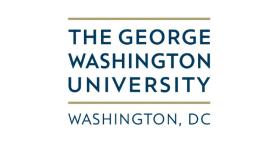Facebook's design makes it unable to control misinformation
In a new study, researchers analyze the world’s largest social media platform and its efforts to remove Covid-19 vaccine misinformation during the pandemic.



Facebook's design makes it unable to control misinformation
In a new study, researchers analyze the world’s largest social media platform and its efforts to remove Covid-19 vaccine misinformation during the pandemic.

Poll Respondents Lack Confidence in False Beliefs
Most polls claiming to show that Americans believe in falsehoods should not be treated as a representation of firm beliefs, according to a study co-funded by IDDP.

New Study Finds Belief in Climate Change Drops Amid Skeptical Content
Exposure to factual information about climate change briefly persuades people to agree with the scientific consensus, according to a new study. However, they often revert to their original attitudes...

New Podcast Series to Confront COVID-19 Disinformation
WASHINGTON (March 31, 2022)— The George Washington University’s popular public...

Facebook’s Vaccine Misinformation Policy Reduces Anti-Vax Information
WASHINGTON (March 2, 2022)— Following years of growing vaccine opposition and...

Corrections On Facebook News Feed Reduces Misinformation
WASHINGTON (February 7, 2022) — Factual corrections published on Facebook’s...

New Study Calls into Question Early Claims of COVID-19 ‘Infodemic’ of Health Misinformation
WASHINGTON (January 12, 2022)— In a first-of-its-kind study comparing...

New International Study Shows Fact Checks Significantly Reduce Belief in Misinformation
WASHINGTON (September 6, 2021)— Fact-checking reduces belief in...

Malicious Content Exploits Pathways Between Platforms To Thrive Online, Subvert Moderation
WASHINGTON (June 15, 2021)— Malicious COVID-19 online content — including racist...

Researchers Shed Light on the Evolution of Extremist Groups
WASHINGTON (May 19, 2021)—Early online support for the Boogaloos, one of the groups...
